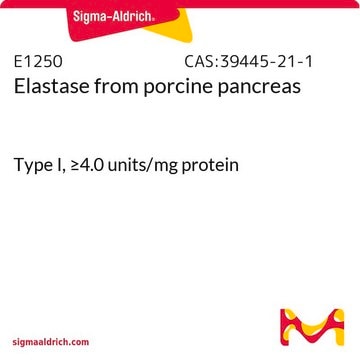F5135
N-[3-(2-Furyl)acryloyl]-Leu-Gly-Pro-Ala
collagenase substrate, chromogenic
Synonym(s):
FALGPA, N-[3-(2-Furyl)acryloyl]-L-leucyl-glycyl-L-prolyl-L-alanine
About This Item
Recommended Products
Product Name
N-[3-(2-Furyl)acryloyl]-Leu-Gly-Pro-Ala,
Quality Level
UniProt accession no.
storage temp.
−20°C
SMILES string
CC(C)C[C@H](NC(=O)\C=C\c1ccco1)C(=O)NCC(=O)N2CCC[C@H]2C(=O)N[C@@H](C)C(O)=O
InChI
1S/C23H32N4O7/c1-14(2)12-17(26-19(28)9-8-16-6-5-11-34-16)21(30)24-13-20(29)27-10-4-7-18(27)22(31)25-15(3)23(32)33/h5-6,8-9,11,14-15,17-18H,4,7,10,12-13H2,1-3H3,(H,24,30)(H,25,31)(H,26,28)(H,32,33)/b9-8+/t15-,17-,18-/m0/s1
InChI key
ZLFQNOJSYZSINX-PVJKAEHXSA-N
Gene Information
mouse ... Prkcq(18761)
Looking for similar products? Visit Product Comparison Guide
Amino Acid Sequence
General description
Application
Biochem/physiol Actions
Packaging
Substrates
Storage Class Code
11 - Combustible Solids
WGK
WGK 3
Flash Point(F)
Not applicable
Flash Point(C)
Not applicable
Personal Protective Equipment
Choose from one of the most recent versions:
Already Own This Product?
Find documentation for the products that you have recently purchased in the Document Library.
Customers Also Viewed
Protocols
To measure collagenase activity, N-(3-[2-Furyl]acryloyl)-Leu-Gly-Pro-Ala is used in a continuous spectrophotometric rate determination at 345 nm. Collagenase hydrolyzes collagen peptide bonds.
Our team of scientists has experience in all areas of research including Life Science, Material Science, Chemical Synthesis, Chromatography, Analytical and many others.
Contact Technical Service





